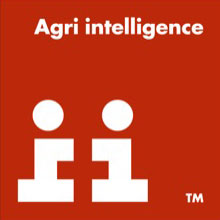

Feed & Nutrition Specialist
It is believed that over 90% of animal feed is contaminated by mycotoxins which can cause major harm to your animals’ health, performance, and consequent profitability. Mycotoxins are metabolites produced by fungi infecting forage and cereal crops in the field as well as during storage and can be found in almost all agricultural commodities worldwide.
This season it is predicted that the risk factor posed by mycotoxins in farm-produced feeds is significantly higher than last year due to the nature of the season and harvesting difficulties on some farms.
Agrii recommends you take control over the risks mycotoxins potentially pose to your animals, as often their effects are very subtle with few visible symptoms of illness. Agrii works closely with several suppliers of “mycotoxin binder” supplements that negate the risks by simple low-inclusion addition to winter rations.
Deactivate mycotoxins.
Activate performance.
Mycotoxins are secondary metabolites of fungi, which means that they are not essential in the normal metabolic function of the fungus. Over 1,000 different mycotoxins and fungal metabolites have already been identified; many of these substances still need to be studied.
They can be produced as the crop is growing and after harvest during storage. Some of the most common and well-known mycotoxins are aflatoxins, trichothecenes such as deoxynivalenol and T-2 toxin, fumonisins, zearalenone, ochratoxin and ergot alkaloids.
Mycotoxins’ effects on animals range from carcinogenicity and neurotoxicity to impaired reproduction, digestive disorders, immunomodulation and decreased live-weight gain and milk output
Clinical signs can be seen at high levels of mycotoxin contamination, but more frequently, we observe subclinical effects. Already moderate levels of mycotoxins, especially during chronic exposure, can negatively affect the animals. Mycotoxins influence the immune system, the integrity of the gut barrier and act as predisposing factors for disease.
Different strains of fungi produce mycotoxins, and each strain can produce more than one mycotoxin. Therefore, co-contamination of crops with several mycotoxins is very likely. This co-occurrence can lead to even more detrimental effects on the animals.
Mycotoxins are invisible, tasteless, chemically stable, and resistant to temperature and storage. They are highly resistant and thus cannot be removed or detoxified during the normal feed manufacturing processes. Good mycotoxin risk management is crucial and should include mycotoxin detection (by laboratory analysis) and other services, as well as solutions to counteract the various mycotoxins in the feed.
Help is at hand. If your winter rations are properly balanced by a qualified nutritionist but are still under-performing, seek advice from Agrii.
The Agrii livestock offering
The Agrii Livestock Team is made up of highly qualified and dedicated advisory staff.
Our staff provide a professional, advice based service in addition to supplying the following products.
- Vaccines for beef, sheep, suckler cow and dairy enterprises
- External and internal parasite control products for all farm animals
- Trace element drenches and boluses for sheep and cattle
- Superstock proteins for home mixing
- Calf and lamb milk powders and follow on products
- Protein and mineralised buckets and feed blocks
- Compound feeds
- Dairy and hygiene chemicals
- Mobile livestock handling equipment
- Cereal, grassland and forage crop seed
- Silage preservation products
- Cereal harvest preservation products
- Farm plans
- Worming programmes, including faecal egg counts
Agrii: for all your livestock needs.


